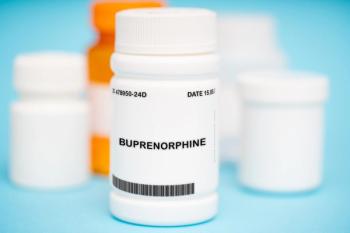
Pharmacy agenda renewed under Democratic Congress
Community R.Ph.s could face a friendlier climate in Congress with Democrats having won the majority of both houses during the mid-term elections. Democrats will now take control of Congressional committees responsible for key pieces of healthcare legislation and financing.
"When you look at the new House leadership, community pharmacy could be better positioned to address some important healthcare issues. We have had real problems with the current leadership over the past couple of years," said Charles Sewell, senior VP of government affairs for the National Community Pharmacists Association.
New House Speaker Nancy Pelosi (D, Calif.) has vowed to introduce two pieces of legislation that would have an immediate impact on pharmacy: raising the minimum wage and enabling Medicare to negotiate lower drug prices with pharmaceutical manufacturers.
John Coster, R.Ph., Ph.D., VP, Policy and Programs, the National Association of Chain Drug Stores, agreed that bipartisanship is critical to moving the Democrats' agenda forward. They really have just next year to pass meaningful legislation. "Nothing substantive will happen in 2008 during an election year," Coster said.
Pharmacy measures
With the Democrats returning to power for the first time since 1994, the pharmacy community is hoping for renewed support to advance several critical issues. Topping the list of legislative priorities is prompt pay for Medicare Part D reimbursement and rolling back the proposed cuts to Medicaid reimbursements outlined in the Deficit Reduction Act.
Under Medicare Part D, drug claims are often paid past 30 days. Earlier this year, a bipartisan bill was introduced requiring payment for electronic claims within 14 days and paper claims within 30 days. It is hoped that the measure will be reintroduced and passed in the next Congress. The Deficit Reduction Act will reduce payments to pharmacies for generic medications by about $6.3 billion over the next four years, analysts estimate. Starting January 2007, federal payments for generic drugs will be based on average manufacturers price (AMP) rather than average wholesale prices (AWP), but there are no federal guidelines on how manufacturers should calculate AMP.
Political allies
NCPA supported 138 candidates in the election and 131 won their races, building a "community pharmacy majority" in Congress. Through the Coalition for Community Pharmacy Action, a newly formed alliance between NCPA and NACDS that lobbies Congress, many R.Ph.s became involved in local campaigns.
Several long-time supporters of pharmacy issues are returning to Congress, including Arkansas Democrats Marion Berry, R.Ph., and Mike Ross, a pharmacy owner. But political newcomer Mike Barrett, R.Ph., representing northwestern Minnesota, lost his first run for Congress. An anti-Republican tide and an underfunded campaign spoiled his chances of unseating eight-term Democratic incumbent Collin Peterson.
Newsletter
Pharmacy practice is always changing. Stay ahead of the curve with the Drug Topics newsletter and get the latest drug information, industry trends, and patient care tips.























